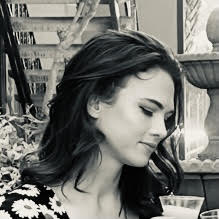
Fewer authors than I’d like to be at the moment! I’d hoped the last two years of pandemic-induced homebody-ism would have turned me back into the frenetic reader I’d been in school. Instead, it seems to have spurred on a severe case of brain rot and my attention span is lacking. As such, I’ve been sort of bouncing around in my reading, starting a lot and finishing little. I’ve relied a lot on podcasts and audiobooks. Anyway, here are a few authors that have managed to stick with me:
Poets: Anne Carson, Aracelis Girmay, Mary Oliver, Fanny Choi, Kristen Chang, Mary Reufle, Richard Siken, Inger Christensen
Novelists: Margaret Atwood, Michelle McNamara, Gillian Flynn
Autobiography of Red by Anne Carson, Crush by Richard Siken, or Kingdom Animalia by Aracelis Girmay.
Novels written in verse, translations, and multilingual texts are a few trends that I have always adored. When I was young, finding a novel written in verse was a sure-fire way to catch my interest. I read Jinx by Meg Cabot in early middle school, and a bit later Burned by Ellen Hopkins and fell in love with the form. It wasn’t until I started college that I learned to love the work done in translations both in acts of deconstruction (especially in modern religious contexts) and in recreation. When done well, translation is such a careful and tedious act of love towards language, culture, time. I find it deeply affecting. A sort of reverse is true for multilingual texts. There’s the same reverence for language, for culture, for time, but a higher expectation of the reader. Writing in multiple languages requires a level of trust in the reader on the part of the author. It’s an invitation—to revel in a shared experience or to perform the work as a reader to understand.
I’m over men and ex-cops writing true crime. Enough said.
I honestly love answering this question, though I mean it in the kindest way. I’ll try to keep this concise—ha!
The first is definitely the most cited ‘trap’: confusing the editing and the creating processes. It’s likely the number one killer of a written work and I definitely mourn all of the poems I had to trash because I couldn’t get the editor in my brain to be quiet long enough to write. I’m constantly having to remind myself to just get the work on the page—it can be “perfect” later.
The bigger trap, though, comes later. As authors, we tend to fall a bit too in love with the minutiae of our work, and get precious about lines, topics, words. This is another death—for poetry especially. There really is a tendency to get trapped. You have a great idea or write a killer line and you want to keep it, so you bend and break the poem to make it fit. The kindest thing you can do for yourself and your work is give yourself permission to let things go. Sometimes you need to save that line for a later poem; sometimes the poem you write, in the end, isn’t the poem you set out to write. That’s beautiful. Trust the evolution. You have a lifetime of poems to write—they don’t all need to exist in one.
Trust yourself. Read more, write more. The number of people who like a poem and how good a poem is are rarely related. Forgive yourself often for confusing the two.
Reyna N.A. was born in Sacramento and grew up in Oceanside, California. She now lives in San Diego with her beautiful wife, Evan, along with their very large cat and very tiny dog. She attended school at the University of California, Davis where she fell in love with poetry as a function of language. She is the author of three self-published chapbooks, and her work has been featured in online literary magazines including Bombus Press, Trouble Child Magazine, and Kingdoms in Wild.


